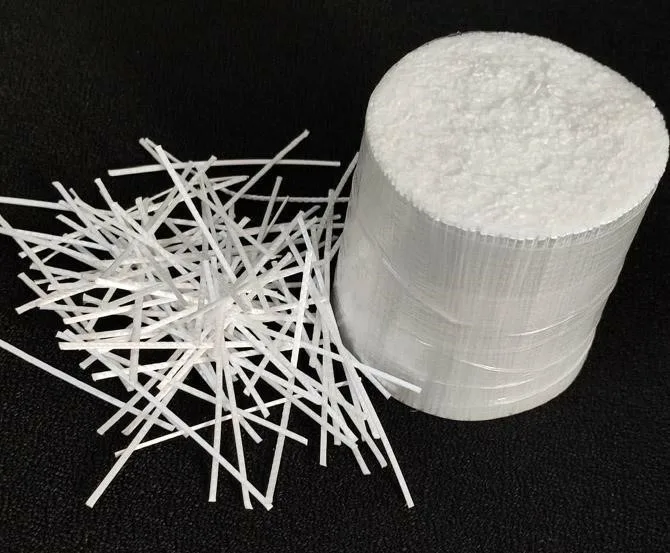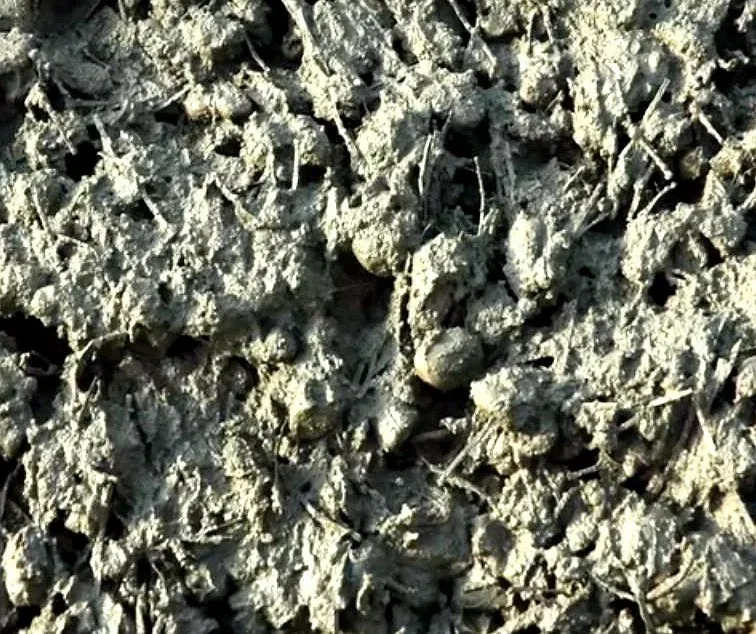Effective industrial flooring is important for ensuring the safety, durability, and efficiency of facilities across various sectors, including manufacturing, warehousing, distribution centres etc. The floors across sectors are constantly subjected to stress from heavy machinery, equipment, and high traffic, making reinforcement essential for maintaining their structural integrity. By reinforcing floors correctly, durability can be improved, ensuring they can endure daily operational demands while reducing the risk of damage or deterioration. A modern and innovative approach to concrete reinforcement is the use of Synthetic Macro Fibers, which provide significant advantages over traditional steel reinforcement and steel fibers.
What Are Synthetic Macro Fibers?
Synthetic macro fibers are high-performance polypropylene fibers specifically engineered to reinforce concrete. Unlike micro fibers, which address shrinkage and cracking, macro fibers enhance the structural integrity of concrete by improving its toughness, durability, and resistance to wear and tear. With their longer and thicker composition, these fibers offer performance similar to traditional reinforcement methods such as steel fibers, mesh, or rebar. Moreover, they provide additional benefits that enhance their overall effectiveness.

Specifications of Macro Fibers
| Parameters | Specifications |
| Fiber Material | Polypropylene |
| Melting Point | ≥ 160°C |
| Specific Gravity | 0.91 |
| Cross Section | Irregular |
| Anchorage | Continuous Embossed |
| Fiber Length | 30-60 mm |
| Equivalent Diameter | > 0.4 mm |
| Tensile Strength | > 550 MPa |
| Young’s Modulus | > 5 GPa |
| Corrosion Resistance | Very High |
Selecting the right Synthetic Macro Fibers?
Choosing the right synthetic macro fiber product is essential for enhancing the performance of flooring systems, one such product is FIBERCRETE®. It is a type of Synthetic Polypropylene Fibers manufactured by Kalyani Polymers Pvt Ltd. These fibers effectively mitigate cracking caused by plastic shrinkage and drying shrinkage, contributing to a more resilient surface. Moreover, these fibers decrease concrete permeability, reducing water bleeding and further extending the lifespan of flooring systems. Their chemically inert, non-magnetic, non-corrosive, and non-conductive properties ensure consistent performance across various flooring applications.
Key Benefits of Fibercrete Synthetic Macro Fibers in Industrial Flooring
- Improved Durability: Industrial floors endure heavy loads, frequent traffic and various mechanical stresses. Synthetic macro fibers improve the tensile strength and toughness of concrete, making it more resistant to cracking, abrasion & impact. This helps extend the lifespan of the floor and reduces maintenance needs.
- Reduced Cracking and Shrinkage: Concrete is prone to shrinkage cracks as it dries and cures. Macro fibers help to distribute stress more evenly throughout the concrete, reducing the formation of shrinkage cracks. This ensures that the industrial flooring remains intact even under heavy loads or thermal fluctuations.
- Corrosion Resistance: Unlike steel reinforcement, synthetic macro fibers do not corrode or rust. This makes them ideal for environments exposed to moisture & chemicals where traditional steel reinforcement may degrade over time, compromising the floor’s integrity.
- Enhanced Flexibility and Impact Resistance: Industrial floors are subjected to dynamic loads, such as forklifts, heavy machinery and pallet jacks. Synthetic macro fibers enhance the flexural toughness of concrete, allowing the floor to absorb and dissipate energy from impacts more effectively, reducing the risk of damage or failure.
- Cost-Effectiveness: The integration of synthetic macro fibers leads to a reduction in labor costs, faster installation, and an extended floor lifespan, making them a more cost-effective solution in the long run.
- Simplified Construction Process: Utilizing synthetic macro fibers eliminates the need for steel bars, fibers, or meshes, streamlining the installation process. This simplification reduces labor time and associated costs, enabling faster project completion without compromising structural performance.
- Lightweight and Easy to Handle: Synthetic macro fibers are lighter than steel, making them easier to handle and mix into concrete. This lightweight nature reduces transportation and storage costs while simplifying on-site handling, further enhancing the efficiency of the construction process.
- Sustainability and Environmental Benefits: In addition to improving performance, synthetic macro fibers contribute to sustainable construction practices. They reduce the need for mining and manufacturing of steel, lower CO2 emissions and minimize waste. Additionally, the longer life span and reduced need for repairs result in less resource consumption over the building’s lifetime.
Fibercrete Synthetic Macro Fibers in Industrial Flooring Applications
- Warehouses & Distribution Centres: Floors in these facilities experience constant vehicular traffic and heavy loading. Synthetic macro fibers provide the necessary reinforcement to resist wear, cracking and impact.
- Manufacturing Plants: Heavy machinery and production lines subject industrial floors to dynamic forces and vibrations. The enhanced toughness provided by macro fibers improves the floor’s ability to withstand these forces over time.
- Cold Storage and Freezers: In environments exposed to extreme temperature fluctuations, synthetic macro fibers offer superior performance by resisting thermal cracking and maintaining the floor’s structural integrity.
- Parking Structures and Loading Bays: These high-traffic areas benefit from the increased toughness and durability that synthetic macro fibers bring, especially in preventing cracking from repeated vehicular loads.

Longitudinal Section of Ground Supported FRC Slab


Synthetic macro fibers are transforming the design and construction of industrial floors, providing a durable, cost-effective, and low-maintenance solution. By improving the strength, flexibility, and resistance of concrete to cracking and impact, these fibers enable industrial floors to endure even the toughest conditions, ultimately extending their lifespan and enhancing overall performance. As industries continue to push for greater efficiency and reliability, synthetic macro fibers will play an increasingly significant role in fulfilling these demands.
About Kalyani Polymers Pvt Ltd.
Kalyani Polymers Pvt Ltd. under the brand name FIBERCRETE® offers a World Class Synthetic Micro & Macro Concrete Fiber Products under “MAKE IN INDIA” and “ATMANIRBHAR” to cater the requirements of Construction Sector in India and around the World and carries a valid CE (European Conformity) mark.
Kalyani Polymers has developed an in-depth understanding of trends and requirements, and in accordance developed unique technologies and manufacturing to best meet customers’ requirements. Having Accredited with ISO 9001 from TUV since 2008, Quality, Service and Innovation have been their Pillars of Development.
We provide customized Concrete Fibers products for every client, and cater to their needs after a thorough investigation of the requirements and necessities. The company’s ability to continuously expand its product range and apply new techniques to present systems by installing new machines for efficient manufacturing is aided by the ample space to innovate and commercialize new products.

ENHANCE. ENERGIZE. ELEVATE
FIBERCRETE
46/1, 11th KM Off Kanakapura Road, Doddakalasandra. Bangalore – 560062 Karnataka, INDIA
Phone: +91-80-40991001
Email: info@fibercrete.in
Website: www.fibercrete.in





